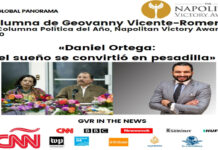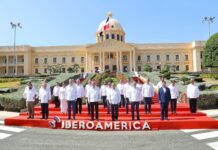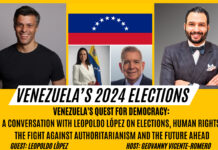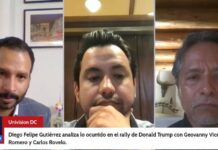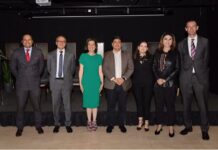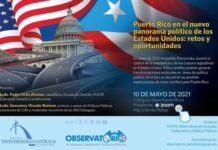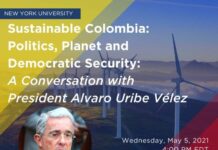On April 4th, Global Foundation for Democracy and Development (GFDD) hosted a panel discussion on the political and electoral panorama of the Latin American and Caribbean region with Gerardo De Icaza, Director of the Department of Electoral Cooperation and Observation at the Secretariat for Strengthening Democracy of the Organization of American States (OAS), and Geovanny Vicente Romero, political analyst, international consultant and speaker, and founder of the Centro de Políticas Públicas, Desarrollo y Liderazgo RD (CPDL-RD). Natasha Despotovic, GFDD’s Executive Director, gave the welcoming remarks, presented the speakers and moderated the discussion. “This is a special moment for the region. In less that 2 years almost all countries would have had their presidential elections”, she noted. De Icaza gave a summary of the situation in the region, noting that “Having too many elections is a good thing in the sense that we are consulting the people, but at the same time, politicians are always campaigning and have a difficult time making relevant decisions for the collective”. He also mentioned that “If we are having more elections we should be happier with our democracy, but surveys show otherwise; surveys say that we as a region are not satisfied with our democracies”. On the other hand, Geovanny Vicente Romero talked about how the ideological map of the region is redesigned with every election and how that affect us. “There is always a democratic crisis. It has been like that for many years. The real crisis now is that of political parties. They need to change or disappear”. Panelists agreed on several political challenges in the region including: fake news and disinformation, illicit money as source of campaign financing, corruption, and unequal access for women. “Political parties today need a creative team to generate truthful news and make them viral”, noted De Icaza, when asked about political communications issues. “The time for press releases and appearances in national TV chains is over”. Vicente Romero also argued that social media has changed how we do everything today, including politics and the relationship with the people. “We need to generate trust in politics again, in politicians and in political parties”. In 2018, six countries had their elections: Brazil, Mexico, Venezuela, Colombia, Paraguay, and Costa Rica; in 2019, another six countries will go vote to elect new authorities as well: Uruguay, Panama, El Salvador, Bolivia, Argentina, and Guatemala. The panel, titled “Uncertain Future: What Lies Ahead in the Political-Electoral Panorama for Latin American and the Caribbean”, was held at GFDD’s Washington, D.C. offices.
¡Bienvenido! Ingresa en tu cuenta
Recupera tu contraseña

 English
English

